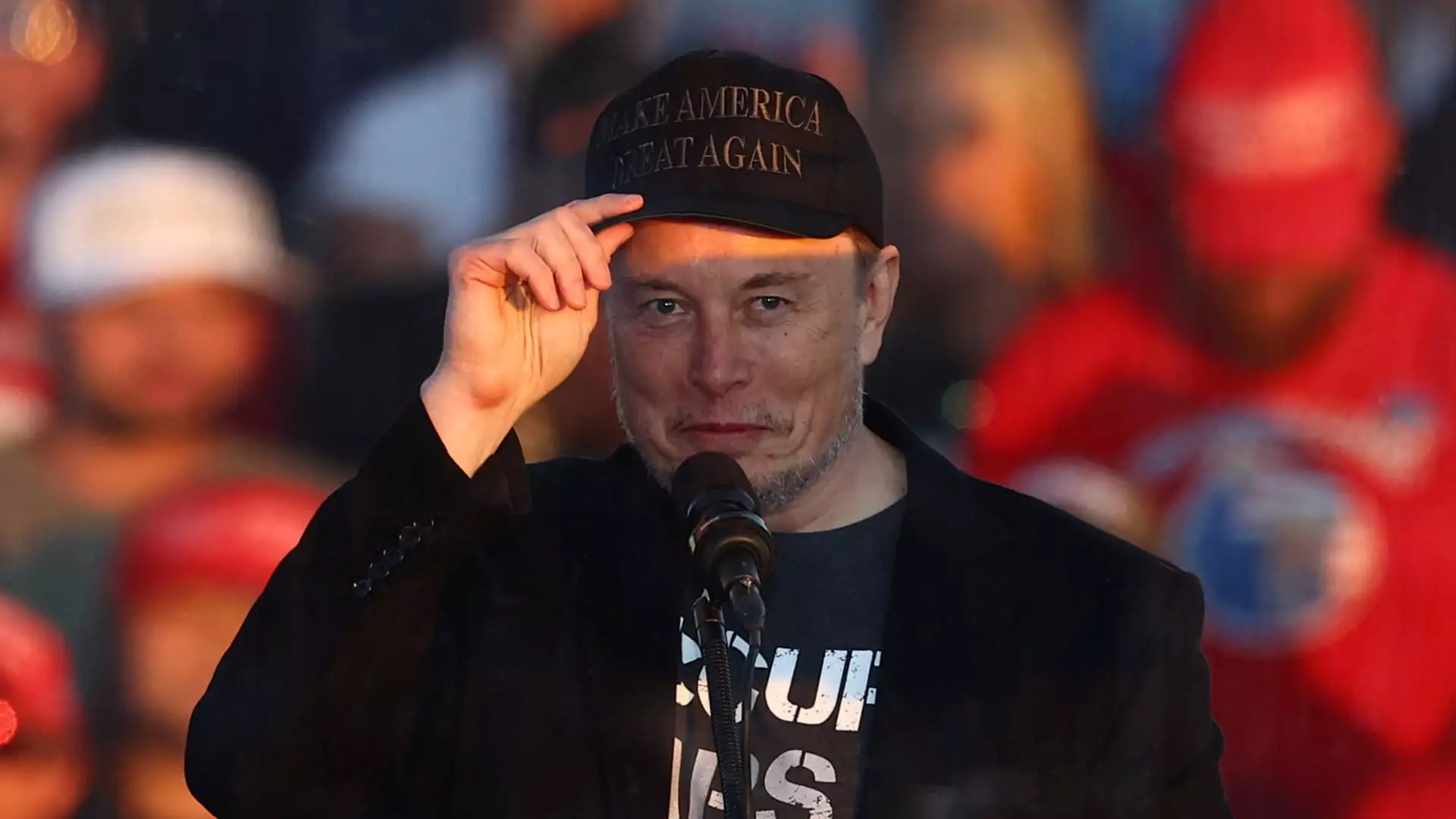Recently, Elon Musk has expanded his influence from the tech arena into the realm of political endorsements, drawing attention for his support of controversial figures and parties. His latest foray into politics has seen him endorse the far-right Alternative for Germany (AfD) party in a post on social media platform X, where he boasts an impressive following of over 200 million users. Musk’s pointed statement—“Only the AfD can save Germany”—has ignited a firestorm of criticism and debate, revealing the impact that a billionaire entrepreneur can have on the political landscape. This endorsement raises questions not only about Musk’s motivations but also about the broader implications of corporate giants becoming embroiled in partisan politics.
Musk’s statement must be viewed within the context of the current German political climate, where the AfD has gained significant traction, particularly following the collapse of the previous left-wing coalition under Chancellor Olaf Scholz. The AfD is currently polling in second place ahead of the upcoming elections, an indication of the shifting sentiments among some segments of the German population. However, the party’s far-right ideologies and troubling history with racism and xenophobia present substantial moral questions. German officials and public figures have condemned the AfD’s attempts to rehabilitate hallowed Nazi references, bringing the focus back to Musk’s endorsement and the potential dangers of aligning with such factions.
The power of social media as a tool for political influence cannot be overstated. Musk, a figure already surrounded by controversy due to his business practices and behavior, has utilized his platform to amplify messages that align with his views. His endorsement of Naomi Seibt—a far-right influencer known for promoting white nationalist ideologies and dismissing climate change—further solidifies the uneasy alliance between business moguls and extremist dialogues. As critics have pointed out, this blurring of boundaries between business and extremist political advocacy creates a perilous precedent for future interactions between influential individuals and volatile political groups.
The political backlash against Musk’s endorsement has been swift and severe. Senator Chris Murphy’s denunciation of Musk as an “out of touch billionaire” highlights the increasing concern among lawmakers regarding the consequences of wealth on democratic processes. Murphy’s remarks serve as a call to vigilance against the re-emergence of extremist ideologies and the normalization of hate politics, emphasizing that figures like Musk wield disproportionate influence over public opinion and political outcomes.
Musk’s political maneuvers come at a precarious time for Tesla. After enjoying a period of exponential growth and soaring stock prices following Donald Trump’s election, the company now faces challenges on multiple fronts, including declining sales in European markets. The AfD’s rising power poses a potential threat to Tesla’s branding and operations within Germany, as the party has criticized Tesla’s labor dynamics and views electric vehicles through a lens of environmental skepticism. As Tesla navigates the complex and often hostile European market, Musk’s political entanglements may complicate business endeavors and public perception, leading to unpredictable consequences for the company’s viability in the region.
Elon Musk’s involvement in political discourse illustrates a concerning trend where business and politics intersect in ways that can destabilize societal norms. The endorsement of the AfD not only reflects Musk’s individual ideologies but also serves as a cautionary tale of how influential figures can inadvertently support regressive movements through their platforms. As more corporate leaders step into political roles, the ethical implications surrounding their influence necessitate critical examination. The line between capitalism and conscience blurs, calling for heightened accountability in a world increasingly shaped by the wealth and voice of its most powerful individuals. In this landscape, the ramifications of such endorsements could echo far beyond individual elections, impacting societal values and political alignments for years to come.

